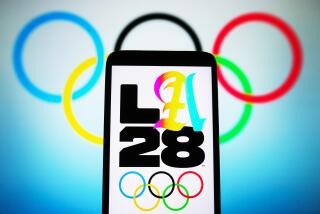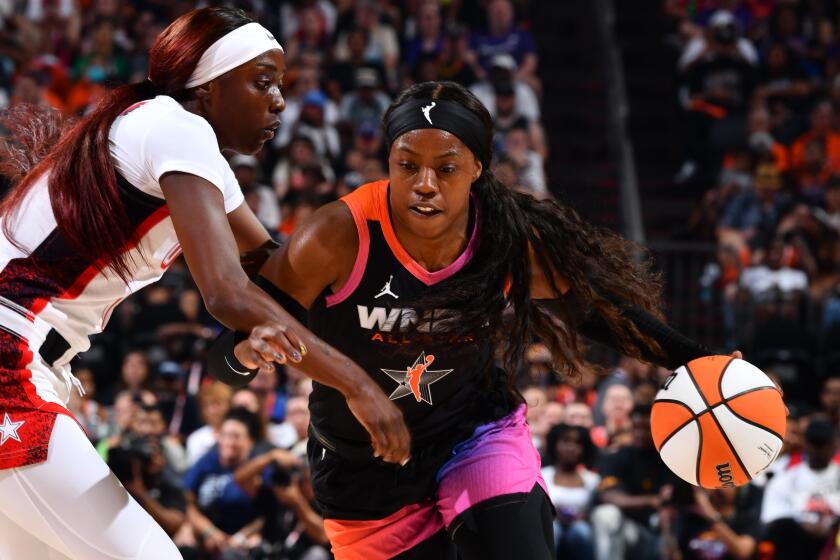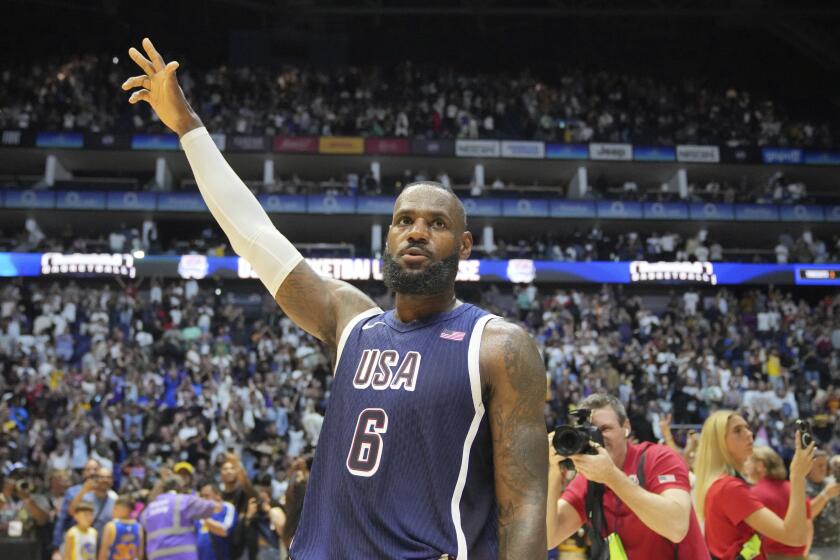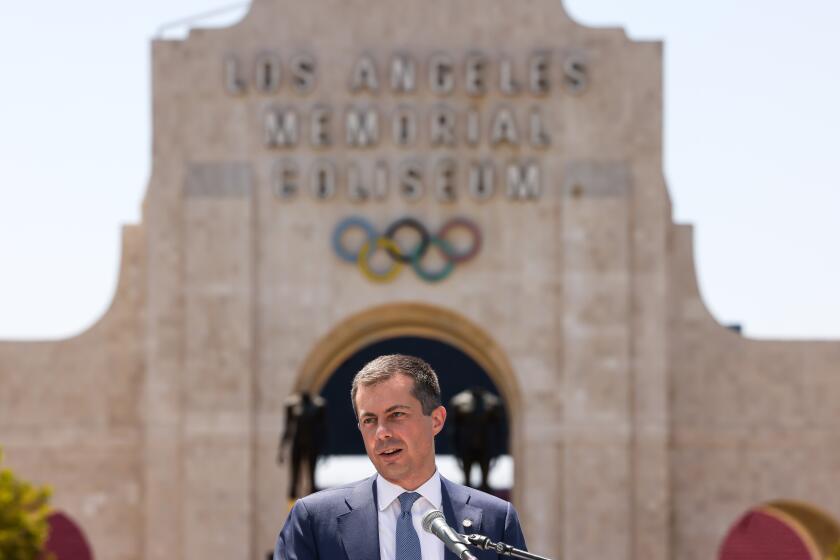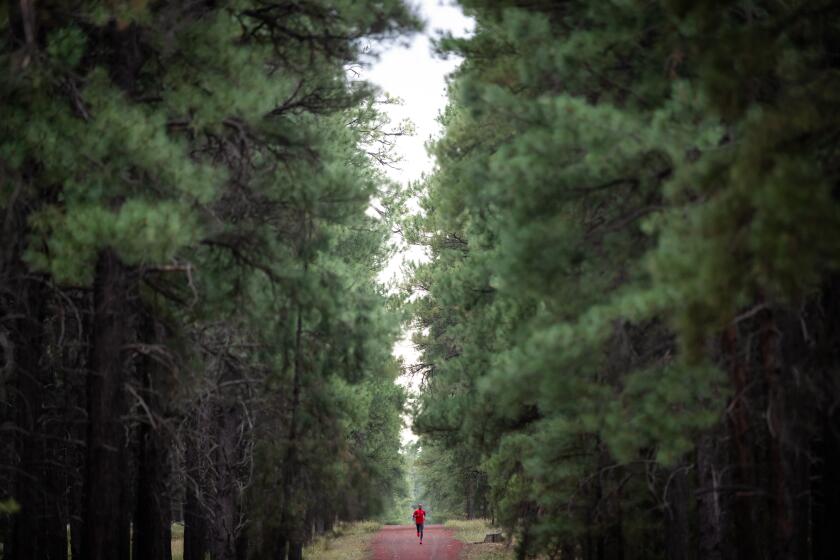This Instructor’s on a Roll
Last February, a student of roller skating instructor Mary Coyle Engstrom promised his lover of almost seven years, who was dying of AIDS, that he would win a medal at the Southwest Pacific regional skating competition in July.
Thirty-two-year-old Thomas De Lorenzo kept his promise: He won a bronze medal, earning the right to compete at the national championships.
“I owe every ounce of that bronze medal to Mary Coyle Engstrom,” says De Lorenzo, a West Hollywood public relations consultant who had returned to skating in 1992 after a 10-year hiatus. “I’m convinced that without her, it would not have happened. She was able to get me back on track instead of sitting at home wallowing in self-pity.”
Engstrom, 39, a resources trainer for Bank of America, discovered skating as a 9-year-old Girl Scout in Montclair, began competing three years later and was ranked in the Top 10 regionally in the junior ladies division when she retired at age 31. She teaches figures, freestyle and solo dance 15 to 20 hours a week at the Moonlight Rollaway Skating Rink in Glendale.
Most of her pupils are children and teen-agers. “When you start skating young, your peers in school, and even parents, get into the ‘You gotta win’ idea. But it’s not about winning. It’s about doing your personal best. I work with the parents as well as the skater to build up that atmosphere, that this is something you do because you want to. As long as you skate your personal best, a medal is icing on the cake.”
She retained that philosophy with the determined De Lorenzo, who was back in roller boots three days after February funeral services for David Burnside. Engstrom convinced De Lorenzo he could compete the next month at a Buena Park meet, where he took first place.
“Mary was going, ‘Just do this for yourself, the way you know you can skate it.’ It just calmed me right down,” recalls De Lorenzo.
With all her students, Engstrom tries to impart her belief that roller skating can be a metaphor for day-to-day living.
“I constantly encourage them and help them manage their time better,” she says. “Learning new elements is hard and they might want to quit. But that’s where skating is like real life. I say to them, ‘Are you quitting because you don’t want to do it any more, which is fine, or just because it’s too hard?’ ”
“She cares for her students, and she goes over and above taking money and giving you a 20- or 30-minute lesson,” says Karen Bullen, whose daughter, Kristina, has lived with Engstrom several days each week over the past eight years to avoid a lengthy commute.
“She makes practice dresses, does hair, makes costumes . . . and takes the kids to the contests. I’ve never heard her say a cross word to any of them.”
“The look on Tom’s face when he won the bronze medal was better than anything,” says Engstrom. “The look on the little kids’ faces, like, ‘I did it!’ is irreplaceable. That’s what teachers are for, to help. If you can get people to believe in themselves, that’s what it’s all about.”
More to Read
Go beyond the scoreboard
Get the latest on L.A.'s teams in the daily Sports Report newsletter.
You may occasionally receive promotional content from the Los Angeles Times.
